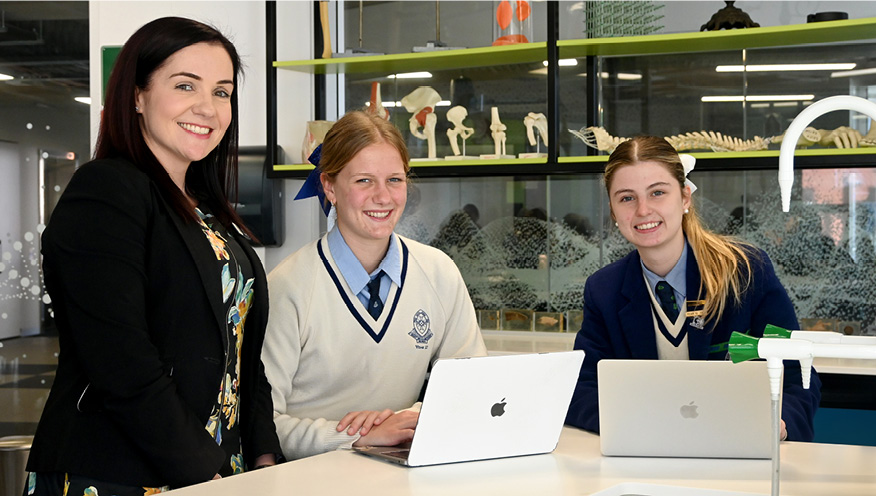
Did you know that students who approach exams with a growth mindset – believing that effort leads to improvement – tend to perform better and feel less stressed? As we stand on the threshold of the Year 8 and 9 exams, and with the significant November exams for our Year 10, 11, and 12 students rapidly approaching, it’s the perfect time to reflect on the essential role these assessments play in our student’s educational journey. Exams, while often associated with anxiety and stress, serve a crucial function in developing resilience, promoting a strong work ethic, and preparing students for future academic and life challenges.
Exams are not just about testing knowledge; they are essential in helping students develop resilience. The ability to face challenges head-on and overcome them is a critical life skill. According to the Australian Council for Educational Research (ACER), students who engage in reflective learning experiences, such as practice exams, are better equipped to handle the pressures of high-stakes assessments in later academic years. This highlights the importance of fostering a growth mindset in students, where they see exams as opportunities for growth rather than as insurmountable obstacles.
Resilience also involves maintaining wellbeing during stressful times. The World Health Organisation (WHO) emphasises the importance of a balanced approach to education, where mental wellbeing, social interactions, and extracurricular activities complement academic performance. Encouraging students to take breaks, engage in activities they enjoy, and practise mindfulness can help alleviate the pressure and improve focus and performance during exam periods.
Effective preparation is key to reducing anxiety and ensuring success in exams. Establishing good study habits early on can significantly improve a student’s performance and confidence. Consistent preparation throughout the academic year, including regular revision, practising with past exam papers, and using study tools like flashcards and quizzes, helps students build a strong foundation.
Incorporating modern study techniques, such as educational apps and online resources, can further enhance learning. These tools promote active engagement with the material, leading to better retention and improved exam outcomes.
While exams are a significant part of the academic journey, they are not the only measure of success. It’s important to remind students that exams are just one of many assessments contributing to their overall development. The WHO advocates for a holistic approach to education, where academic performance is balanced with physical health, mental wellbeing, and social development. This approach helps students develop into well-rounded individuals, equipped to handle the diverse challenges of life beyond school.
Extracurricular activities, such as sports, arts, and volunteer work, provide necessary outlets for students to decompress and maintain a healthy work-life balance. These activities also help in developing time-management skills, which are invaluable during stressful exam periods.
For Year 8 and 9 students, these upcoming exams are more than just tests; they are an introduction to the structured and rigorous assessment methods they will encounter in their final years. Experiencing exams early on helps students understand the process, manage their time effectively, and develop strong study strategies. ACER’s research supports the idea that early exposure to exams can build the confidence and resilience needed to excel in later years.
Managing exam stress is crucial for both academic success and overall wellbeing. Techniques such as mindfulness meditation, which WHO highlights as beneficial for reducing stress, can help students maintain focus and calm during exams. Time management is another critical factor; creating a realistic study schedule that includes regular breaks and time for relaxation can prevent burnout. Maintaining a healthy lifestyle, including proper nutrition, adequate sleep, and regular exercise, is also essential for cognitive function and stress reduction.
Exams are an essential part of the educational process, offering students the opportunity to develop resilience, refine their preparation strategies, and understand that success in life is about more than just grades. As we head into the exam period, let’s support our students by promoting a balanced approach to study, wellbeing, and overall development.
Kate Fryer
Director of Teaching and Learning
